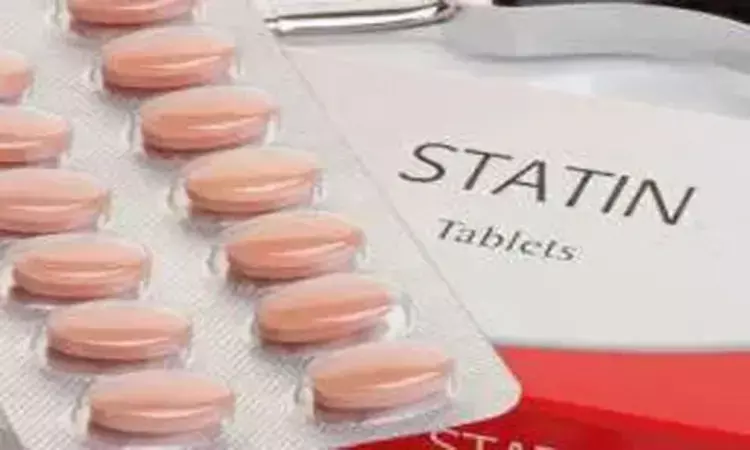- Home
- Medical news & Guidelines
- Anesthesiology
- Cardiology and CTVS
- Critical Care
- Dentistry
- Dermatology
- Diabetes and Endocrinology
- ENT
- Gastroenterology
- Medicine
- Nephrology
- Neurology
- Obstretics-Gynaecology
- Oncology
- Ophthalmology
- Orthopaedics
- Pediatrics-Neonatology
- Psychiatry
- Pulmonology
- Radiology
- Surgery
- Urology
- Laboratory Medicine
- Diet
- Nursing
- Paramedical
- Physiotherapy
- Health news
- Fact Check
- Bone Health Fact Check
- Brain Health Fact Check
- Cancer Related Fact Check
- Child Care Fact Check
- Dental and oral health fact check
- Diabetes and metabolic health fact check
- Diet and Nutrition Fact Check
- Eye and ENT Care Fact Check
- Fitness fact check
- Gut health fact check
- Heart health fact check
- Kidney health fact check
- Medical education fact check
- Men's health fact check
- Respiratory fact check
- Skin and hair care fact check
- Vaccine and Immunization fact check
- Women's health fact check
- AYUSH
- State News
- Andaman and Nicobar Islands
- Andhra Pradesh
- Arunachal Pradesh
- Assam
- Bihar
- Chandigarh
- Chattisgarh
- Dadra and Nagar Haveli
- Daman and Diu
- Delhi
- Goa
- Gujarat
- Haryana
- Himachal Pradesh
- Jammu & Kashmir
- Jharkhand
- Karnataka
- Kerala
- Ladakh
- Lakshadweep
- Madhya Pradesh
- Maharashtra
- Manipur
- Meghalaya
- Mizoram
- Nagaland
- Odisha
- Puducherry
- Punjab
- Rajasthan
- Sikkim
- Tamil Nadu
- Telangana
- Tripura
- Uttar Pradesh
- Uttrakhand
- West Bengal
- Medical Education
- Industry
Statins may prevent adhesion-related complications after intra-abdominal surgery: JAMA

USA: Statins may be an inexpensive, well-tolerated pharmacologic option for the prevention of postoperative adhesion-related complications (ARCs) in people undergoing intra-abdominal surgery, finds a recent study in the journal JAMA Network Open.
The common complications of intra-abdominal surgery are adhesion-related complications (ARCs), including small-bowel obstruction. Statins, which have antifibrotic pleiotropic effects is known to inhibit adhesion formation in murine models but the same as not been assessed in humans. Frank I. Scott, University of Colorado Anschutz Medical Campus, Aurora, and colleagues aimed to assess whether the use of statin at the time of intra-abdominal surgery is associated with ARCs reduction.
The study involved 2 separate retrospective cohort studies (The Health Improvement Network [THIN] and Optum's Clinformatics Data Mart [Optum]) that compared adults receiving statins versus people who did not receive statins at the time of intra-abdominal surgery.
It included people undergoing intra-abdominal surgery from January 1, 1996, to December 31, 2013, in the United Kingdom and from January 1, 2000, to December 31, 2016, in the US. People with obstructive events before surgery or a history of inflammatory bowel disease were excluded. Data analysis was performed from September 1, 2012, to November 24, 2020.
The primary outcome was ARCs, defined as small-bowel obstruction or need for adhesiolysis, occurring after surgery.
For THIN, a total of 148 601 and for Optum 1 188 217 individuals met the inclusion criteria.
Key findings of the study include:
- A total of 2060 participants (1.4%) experienced an ARC in THIN and 54 136 (4.6%) in Optum.
- Statin use at the time of surgery was associated with decreased risk of ARCs (THIN: adjusted hazard ratio [HR], 0.81; Optum: adjusted HR, 0.92).
- Similar associations were appreciated between statins and small-bowel obstruction (THIN: adjusted HR, 0.80; Optum: adjusted HR, 0.88).
"This research suggests that statin use may be significantly associated with a decreased probability of ARCs and small-bowel obstructions (SBOs) after intra-abdominal surgery. Future prospective randomized clinical trials of this inexpensive, well-tolerated therapy will be required to confirm these findings," concluded the authors.
The study titled, "Association Between Statin Use at the Time of Intra-abdominal Surgery and Postoperative Adhesion-Related Complications and Small-Bowel Obstruction," is published in the journal JAMA Network Open.
DOI: https://jamanetwork.com/journals/jamanetworkopen/fullarticle/2775824
Dr Kamal Kant Kohli-MBBS, DTCD- a chest specialist with more than 30 years of practice and a flair for writing clinical articles, Dr Kamal Kant Kohli joined Medical Dialogues as a Chief Editor of Medical News. Besides writing articles, as an editor, he proofreads and verifies all the medical content published on Medical Dialogues including those coming from journals, studies,medical conferences,guidelines etc. Email: drkohli@medicaldialogues.in. Contact no. 011-43720751


